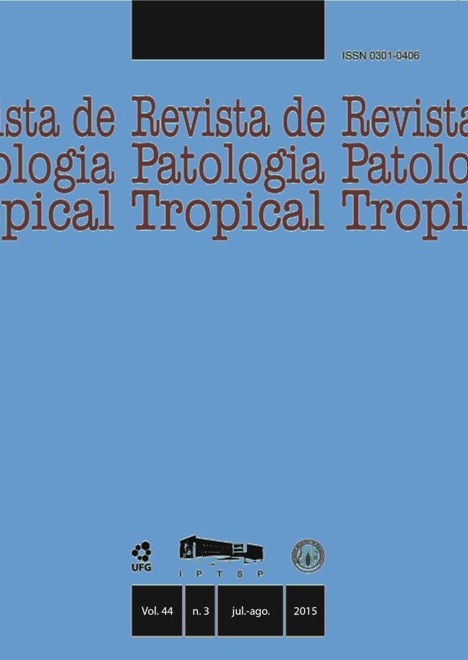ANTIFUNGAL ACTIVITY EVALUATION OF Curcuma Longa ON Candida Parapsilosis
DOI:
https://doi.org/10.5216/rpt.v44i3.38022Keywords:
C. parapsilosis, candidiasis, C. longa, inhibitor, medicinal plants, cerrado.Abstract
Among fungal infections that affect human beings, candidiasis has significant relevance. Its most common etiological agent is Candida albicans, but over the past three decades candidiasis episodes caused by other species, such as Candida parapsilosis, have emerged. The Brazilian Cerrado has a huge morphological diversity of plants. Curcuma longa, a plant widely found in this biome, has been studied both for its antibacterial and antifungal activity. The aim of this study was to evaluate the antifungal activity of C. longa on C. parapsilosis by analyzing the inhibitory capacity of extracts from different parts of the plant on the fungus. The antifungal activity of ethanolic extracts from rhizomes and leaves of C. longa was evaluated by the macrodilution method, determining the minimum inhibitory concentration (MIC), alongside sensitivity testing performed in plates and by the diffusion disk method. We also evaluated the synergy between the extracts in combination with traditional antifungal drugs. C. longa has antifungal activity on the growth of C. parapsilosis with a MIC value obtained from ethanolic extracts of 500 ppm for rhizomes and leaves. It was possible to observe synergistic activity between the leaf extracts and amphotericin B and antagonistic activity between rhizome extracts and amphotericin B. It may be concluded that the leaf and rhizome extracts of C. longa have antifungal activity against C. parapsilosis in a dose-dependent manner, showing the antifungal potential of the plantDownloads
Downloads
Published
How to Cite
Issue
Section
License
The manuscript submission must be accompanied by a letter signed by all authors stating the full name and email address, confirming that the material has not been published or is under consideration for publication elsewhere, and agreeing to transfer copyright in all media and formats for Journal of Tropical Pathology. The authors will not be paid for published articles. They are solely responsible for the content of those articles, even if the Editor holds the right to adjust them to the norms of the journal.
The reviewers will not be paid for the peer review process.

